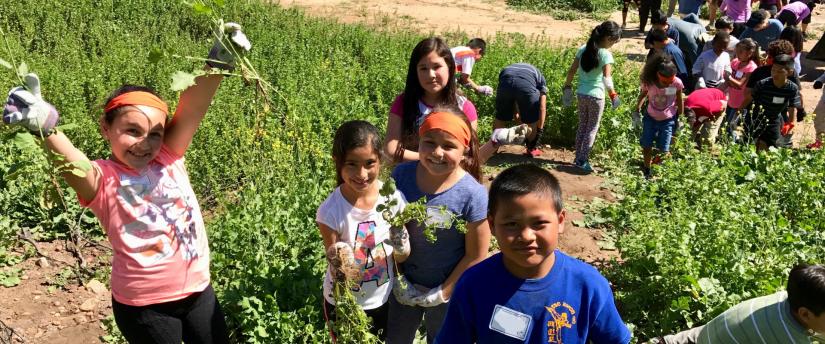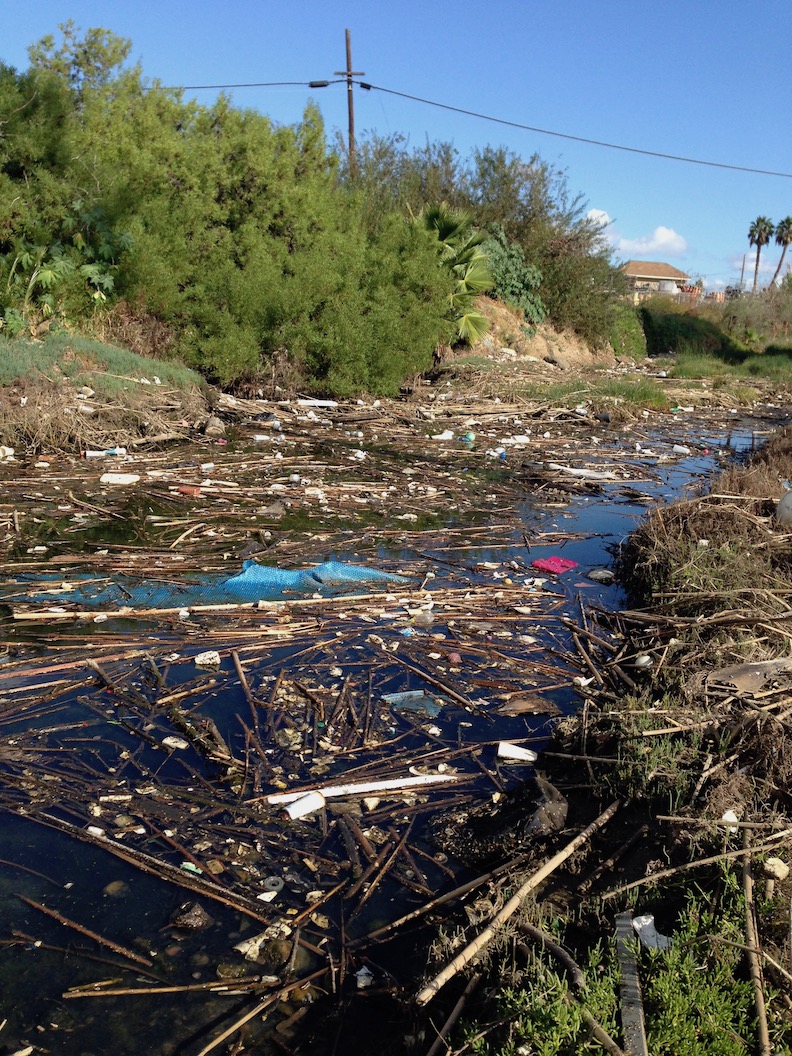
Project Background
While several widely accepted trash monitoring protocols exist for waterways and wetlands, less attention has been paid to protocols for assessing trash along urban streets. Monitoring urban streets is important as these densely populated areas are sources of much litter that ultimately finds its way through waterways and to the ocean via city storm drain systems.
The canyons and seasonal creeks reticulating throughout Southern California serve as stormwater systems, conveying runoff and debris from urbanized landscapes and city streets to coastal waters.
Trash, such as wrappers, packaging, bags and single-use food containers, is abundant throughout these coastal waterways, with much of it flowing into canyons and creekbeds from neighboring city streets.

As with many Southern California cities, San Diego has implemented trash control strategies such as lidded trash cans and street sweeping, yet stormwater trash inputs remain high, indicating that such control strategies may not be enough to keep coastal watersheds trash-free. While several widely accepted trash monitoring protocols exist for waterways and wetlands, less attention has been paid to protocols for assessing trash along urban streets. Needed is a better understanding of the types and sources of the trash in waterways, and efforts to educate and empower the community to contribute to solutions.
Project Goals
Our project goal is to reduce the amount of trash in coastal waterways by improving our understanding of urban neighborhood trash sources through development of standardized protocols and implementation using an experiential education program.
To meet this goal, we are drawing on our past community science efforts within a highly urbanized, impoverished neighborhood in San Diego to:
(i.) Research and design a standardized trash monitoring protocol for urban neighborhoods that can be conducted by novice citizen scientists and students
(ii.) Develop transferable educational curricula and materials for use in training and educating citizen scientists and students in the implementation of protocols and other topics related to the issues of trash pollution and the building of science identity.
(iii.) Conduct an education program to educate middle school students and their high school student mentors while piloting the educational curriculum and activities, and the trash monitoring protocols
Go to PROJECT RESOURCES page
Project team: California Sea Grant, Ocean Discovery Institute, NOAA Marine Debris Program, City of San Diego
 Theresa Sinicrope Talley
Theresa Sinicrope Talley
 Lupita Barajas
Lupita Barajas